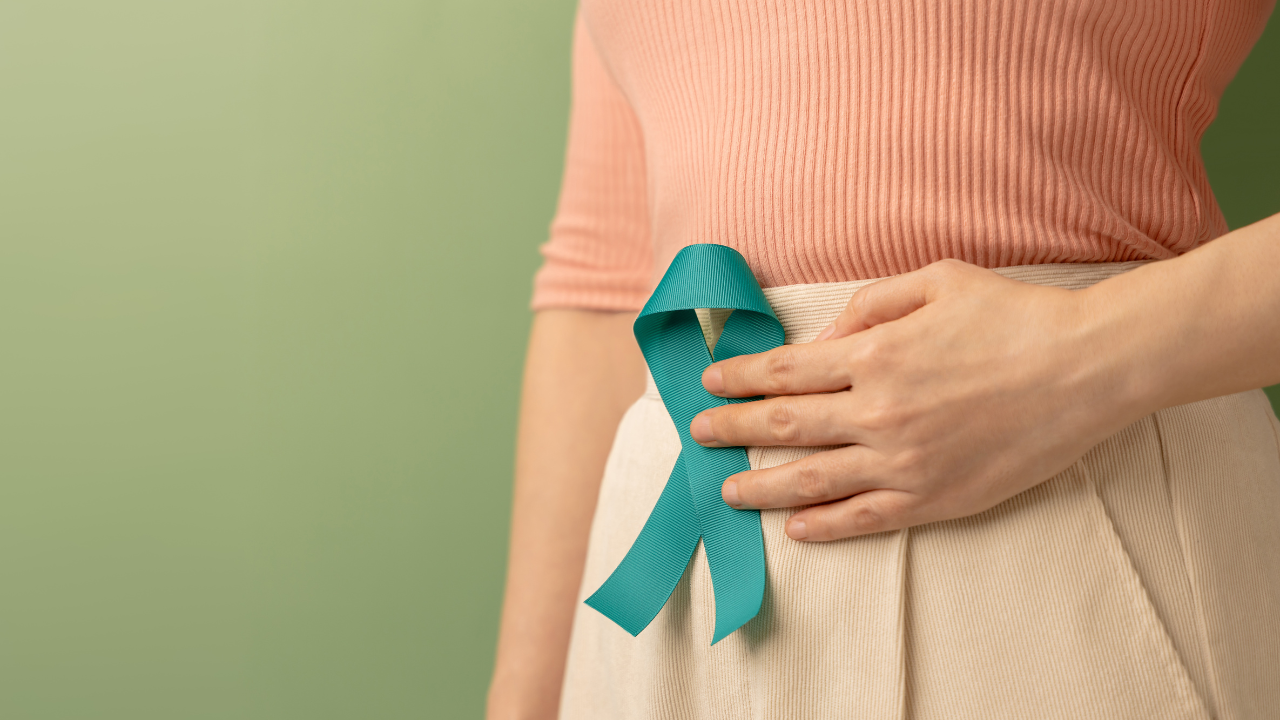I get it: I was so full of that pregnancy glow that I just didn’t hear the warnings:
“Get ready for no sleep!”
“You’re going to be so busy now!”
“It took me at least six weeks to recover!”
In most cases, I just laughed and agreed, “Yep, I know!” But I wish—I really wish—a friend had sat me down, looked me in the eye and said, “No, I don’t think you’re hearing me. This is what’s really going to go down after you have a baby.”
And experts agree. “You’re having a baby, so it does consume your life,” said Teresa McCullen, lactation consultant at Augusta University Health. “And I do see it even in the classes I teach: It’s hard when you’re pregnant to hear this. Some moms believe they will be in charge of everything like they were before, and they can’t even fathom the other.”
So this is the full-on, honest truth of everything I wish someone had told me about what it’s like after pregnancy and once you actually have your baby.
Expect your sleep schedule to change for the next several years.
If you’re lucky enough to have a child who sleeps through the night at 6 weeks, I am so happy for you (and jealous of you!). Because my baby still woke up wanting a snack up to when she was 2 and a half.
My daughter is now 3, and I’m only just now getting back to being able to sleep the way I used to. Because regular wakings to feed and/or change a baby kind of rewire your brain so that you’re always subconsciously waiting for that wake-up call. At the worst, I would lie there awake off and on most nights, getting about four hours of total sleep, even while my baby was snoozing away.
Because I breastfed until she was about 15 months old, I didn’t want to take medications, although I’d try the occasional Benadryl and also magnesium, which is supposed to help regulate your body’s melatonin and calm your nervous system. Post-breastfeeding, melatonin and Benadryl were my good friends, along with earplugs to soften noises and an eye cover. My husband also took on most of the middle-of-the-night wakings so that I could try to get my sleep back.
Experts say: “Think of your life as a pie,” said McCullen. “The baby is going to take up 80% to 90% of that pie. So think about what is important to fit into that remaining 10% to 20%. You have to build in rest. If you need a few hours of uninterrupted sleep at night without the baby, especially in the first week when you’re drained from lack of sleep during labor, birth and recovery, figure out how to do that with a significant other or family member.” Dr. Renee Page, an OBGYN at Augusta University Health, added, “People who tell you to sleep when the baby sleeps are liars. This is time to let your tribe in and say, ‘I need help,’ and that doesn’t end after six weeks. To be able to phone a friend and say, I need you to help me hold the baby and feed him or her for a few hours, and have time so you can sleep, that’s huge.” If you’re having trouble falling asleep even while the baby is sleeping, take a walk outside with the baby, just for 30 minutes, to get some sunshine and fresh air; schedule time with your tribe so you can exercise; and try Benadryl, then low doses of melatonin if you’re still having trouble.
There’s going to be a lot going on down there.
At 6 pounds, 10 ounces, my daughter wasn’t the biggest newborn out there. But pushing something of any size through that particular area of your body is going to cause some hurting. It really will take a full six weeks for your body to recover, whether you had a vaginal birth or a Caesarean section.
Depending on your exact situation, this could mean that you can’t lift anything, including your older children. It could mean you have trouble walking up stairs. It could mean you have trouble doing number 2! For me, it even meant that I sobbed to my husband, “It hurts too much to climb into bed,” and resorted to clambering up my dog’s pet stairs for the first week or so.
So take all your medications as prescribed. That includes pain medications, that cooling spray (Dermaplast) and stool softeners. Use the Sitz bath as much as possible to help your stitches heal. And yes, you might develop some pre-hemorrhoids or actual hemorrhoids from all the pushing during childbirth. Just use the Tucks or similar wipes to help calm them down.
Experts say: “Seriously, things are not going to feel right down there,” said Page, who also had discomfort when she had her second child. Her gift to pregnant friends includes “grandma panties,” overnight pads (essential because there is going to post-birth bleeding for a while) and Tucks or other cooling pads infused with witch hazel that you can tuck right into the pad. Your hospital should also provide you with a peri bottle to help you rinse the area down there; fill it with cool or warm water (your preference) and rinse while you’re urinating since urine can “burn” your stitches. “When I was postpartum in the hospital, my nurse put a baby diaper filled with ice for relief, and it was wonderful,” said Page.
Feeding your baby will become a full-time activity.
Baby websites and other experts will tell you that your newborn will feed about eight to 12 times a day during the first month. Ha! Keep in mind that’s an average, and your baby may feed a much higher-than-average amount. Case in point: I tracked all of my daughter’s feedings, and during those early days, sometimes it was more like 20 times a day. She’s what my friend Connie described as a grazer, and she still is today, preferring to eat small meals and snacks.
So I spent a lot of time in a chair with a baby at my breast, especially since she often loved to eat for long periods of time, sometimes up to three hours if I let her! To help make that time easier, listen to books on tape or watch movies or shows on your smartphone. Also, plan ahead with your significant other that he or she will check on you every half-hour to see if you need water or anything else. I also wish I had been more confident about doing the strolling feed using a wrap carrier, or even just more confident breastfeeding in a restaurant or store.
Experts say: Getting out of the house for fresh air, sunshine and human interaction is really important. So be brave; you can do it. Fortunately, there are so many clothing choices available now to help moms breastfeed in public comfortably. And, said McCullen, it’s a good idea to practice at home. Make sure you have a bra that will allow easy access to your breasts. A coverup is a good item to have in your diaper bag, or for even more flexibility, try a breastfeeding tank topped with a button-up or other style of shirt that you can pull around yourself and your baby. “I highly recommend layering,” she said.
You’re not going to feel like yourself, and it is OK.
There is no time in your life when you are going to be more hormonal than after childbirth. Add to that this huge change in your life, and you’re going to be experiencing so many feelings, especially if this is the first time you’ve done this motherhood thing.
You’re going to be afraid that you won’t know how to take care of this baby and that you’re going to do the wrong thing. You’re going to really miss your old life of being able to sleep and eat whenever you want, much less go out or watch TV. You’re going to be so full of love watching this baby flutter her eyes closed or when she grasps your finger with her tiny ones. You’re going to be so mad that your husband isn’t also as exhausted and stressed as you are. You’re going to be so tired, and so frustrated that you’re so tired because there’s so much more to do and think about than you realized or expected.
But oh, take a deep breath. And know this: Even when other moms look so put together, everyone struggles. It’s a challenge for every mom, even though you might have additional stresses like no support system or a loss of income.
I finally talked to my OB/GYN to ask about a referral for counseling. And I still remember how even that hour-long conversation with her was so incredibly helpful, to have someone listen and tell me it was OK and that it would be OK.
Experts say: “Postpartum depression is real,” said Page, who says she went through it with her first child. “Your sleep is disturbed, your hormones are disturbed, you hurt in places you aren’t supposed to hurt, and you’re having guilt on top of all that because you’re supposed to look and feel perfect after you have a baby. I try to talk to moms about this, preferably with their partners in the room, because if you’re experiencing depression or paranoid thoughts, it’s OK to get a referral to a psychologist. Nobody needs to feel like they can’t talk about it.”
“It’s a joyous time, but it’s also intense,” added McCullen. And while many parents-to-be spend a lot of time reading and learning about how to set up a nursery, car seats and the actual labor and birth, there often isn’t as much study on life with baby. “I encourage all parents-to-be to do some research, read, talk with friends and family and have a flexible plan in mind. I don’t want anyone to go through pregnancy thinking life is going to go back to the way it was before you were pregnant. It’s not going to be the same—but in many ways, it’s better. Still, you have to do some self-reflection. And if you find that you’re struggling, please don’t be afraid or ashamed to talk to your doctor.”
Augusta University Health is proud to initiate the first 24/7 Obstetrics Emergency Department (OB ED) in Augusta, Ga. that is dedicated to treating unexpected pregnancy and post-delivery issues for pregnant women 20 weeks gestation and greater and postpartum women who delivered within 6 weeks. Learn more here or call 706-721-2688. To find an OBGYN or schedule an appointment at Augusta University Women’s Health, visit augustahealth.org/women or call 706-721-4959.





